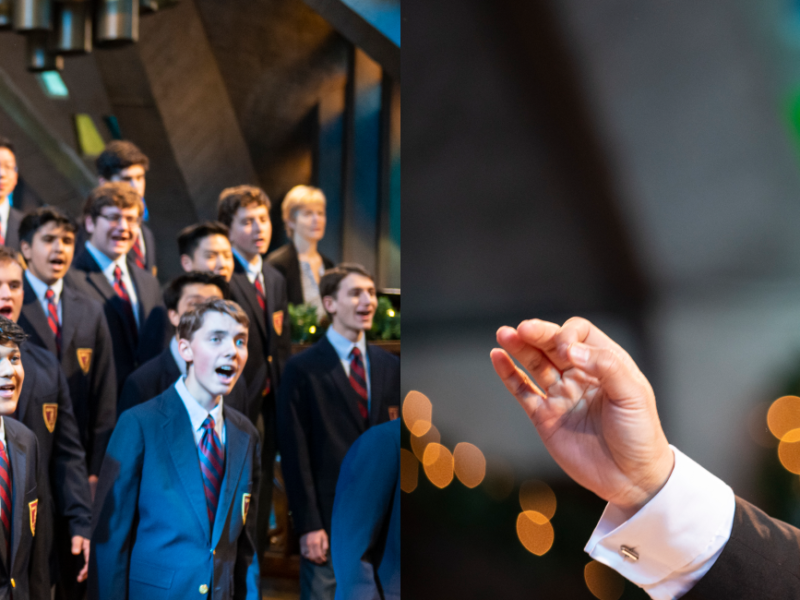Learning from the greats

At camp this summer, the boys learned a lot of music. We asked them to write about their favorites and to share what they like about the music. Reproduced in full below, Concert Group members Aidan Bannon and Jeffrey Fung addressed our Camp Farewell concert audience about two of the pieces that the Choral Scholars and Concert Group performed.
As you’ll see from Aidan and Jeffrey’s comments, Ragazzi boys have learned some great music, but more, they’ve learned to love learning. The more complex a piece of music is, the more they relish the challenge. In school, one learns literature from the great writers; at Ragazzi we learn music from the great composers across many centuries and across the many countries of the world. And sometimes we do sing pop music – and we dance along! Ragazzi boys will join together this fall in the great adventure of learning new music. They’ll share that learning and the joy with you this season in our concerts.
Aidan Bannon: “You have just heard a movement from the Fauré Requiem. This is a perfect example of Ragazzi’s repertoire. Repertoire [the music chosen] is the foundation for all choirs. It demonstrates the skill level of the chorus as well as the choristers’ commitment to the choir. Ragazzi is an excellent choir committed to “performing choral music to the highest standards” as evidenced by Ragazzi’s performances of [Allegri’s] Miserere [from last year] and Fauré’s Requiem. And for me, along with my fellow choristers, this is why we are here. The amazing journey that choral music gives us is vastly rewarding every time. First, learning the rhythm, notes, and words, then putting the parts together, and the joy of perfecting even one tiny phrase.
On the other hand, it may seem like most of us like pop, especially since it dominates most people’s knowledge of music. My mom has asked me to sing pop myself because she has never heard me sing it. But the truth is that pop is very simple, and we all know the songs because they are playing all the time everywhere. Pop is not what make Ragazzi world famous. We are world famous because we perform choral music with excellence.”
Jeffrey Fung: “Choral music, especially classical music, is an exciting challenge to those who enjoy it. In Ragazzi, we study music theory to help us understand and learn our music. One of the songs we learned at camp this summer, Haec Dies, composed around 1607 by William Byrd, presents its difficulties in counterpoint. Counterpoint, a basis for many musical forms of the Renaissance and Baroque such as the fugue, toccata, and passacaglia, employs the movement of different parts or vocal lines at different times. The most famous composer who excels at counterpoint is J. S. Bach. More basic polyphony is seen in the works of Palestrina, and as mentioned earlier, Byrd. In Haec Dies, Byrd employs staggered entrances of the same theme and the text as follows.
Haec Dies, quam fecit Dominus. Exultemus et laetemur in ea. Alleluia.
Translation: This day, which the Lord has made. We praise him and rejoice in it. Alleluia.
When Concert Group and YME sing this at a concert, strive to listen for the trebles and men singing the same motive or text at overlapping times. I look forward to getting back to work.”
